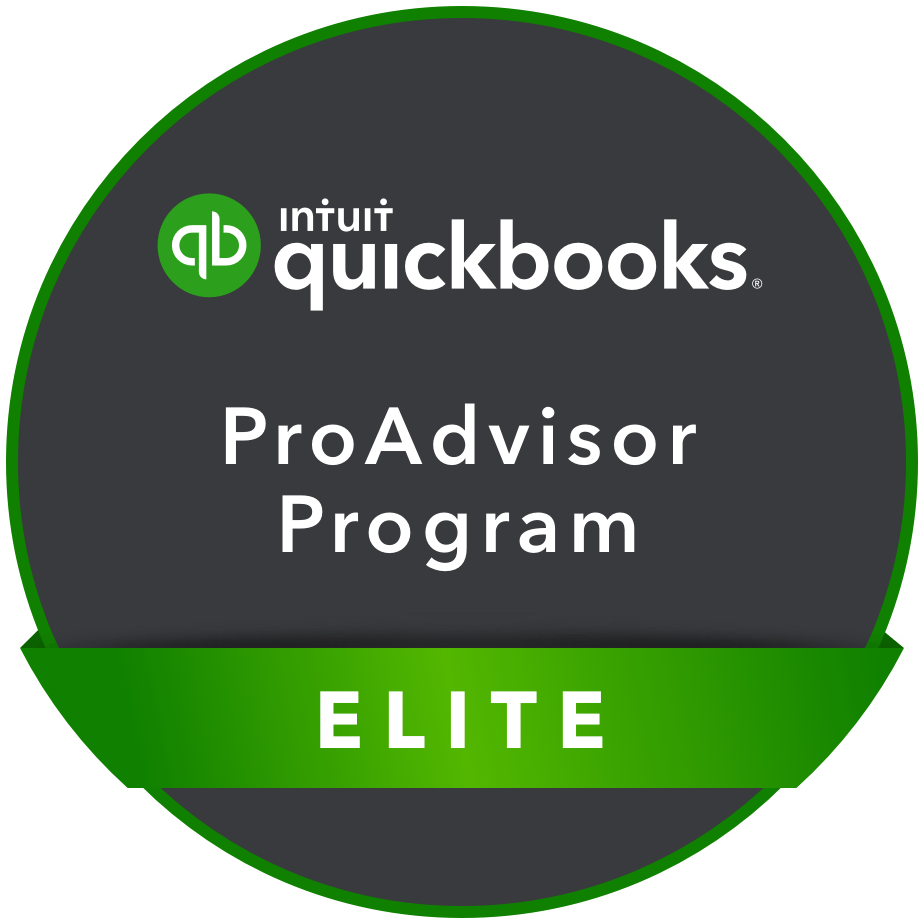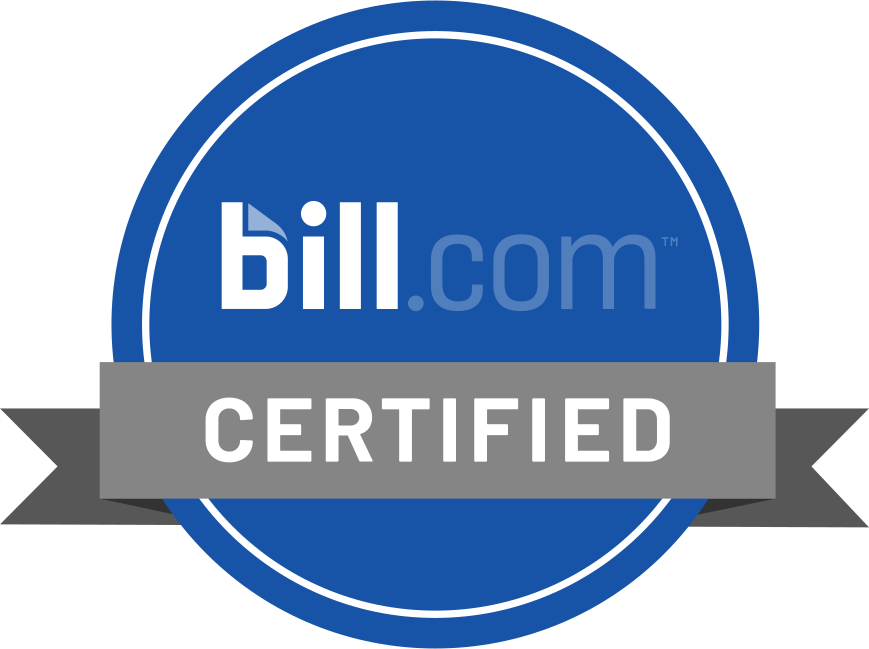YOUR ULTIMATE GUIDE TO
Hiring a Virtual Accountant for Small Businesses
Educate Yourself
In this fast-paced digital era, managing finances efficiently is crucial for small business success. Imagine having a dedicated financial expert who can ensure your books are in order, help you make data-driven decisions, and free up your time—all from the comfort of your home or office. Enter the world of online accounting services! This comprehensive guide will walk you through everything you need to know about hiring a virtual accountant, ensuring your small business thrives.
Introduction to Online Accounting
Through efficiency, automation, and delegation, online accounting has revolutionized financial management for small businesses. Gone are the days of sifting through piles of paper receipts and spending hours manually entering data into spreadsheets. Online accountants offers a seamless, efficient, and secure way to manage your finances without having to sacrifice the personal touch and communicating and collaborating with your expert.
By leveraging cloud-based software, online accountants provide real-time financial insights, streamline bookkeeping processes, and ensure compliance with tax regulations. For small business owners, this means more time to focus on core operations and less stress over financial management.
Bookkeeping is often seen as a tedious and time-consuming task, one that many would gladly delegate if given the opportunity. This is where the idea of hiring a virtual accountant or bookkeeper comes into play—a move we at Barklee believe can be highly beneficial for your business when the timing is right. However, it’s important to fully understand what it means to bring a virtual accountant onto your team.
In this guide, we'll explore the ins and outs of online accounting services, helping you understand their importance, how they work, and how to choose the right virtual accountant for your business.
In this article, we will explore the distinctions between an accountant and a bookkeeper, and why understanding these roles is crucial for your business. We will highlight when it’s time to integrate a virtual accountant into your team and provide guidance on interviewing potential candidates. Additionally, we will cover key topics related to Virtual Accountants, such as the services they offer and the associated costs.
Table of Contents
1. What is an Online Accountant and Why Does It Matter?
2. How do you Perform Accounting Online?
3. How to Vet and Hire an Online Accountant?
4. What are the Pros and Cons of an Online Accountant?
5. Tips and Tricks for Working with a Virtual Accountant.
6. How Much Does an Online Accountant/Bookkeeper Cost?
7. More Resources for Virtual Accountant Services and How to Schedule a Conversation.
Now, let's dive in!
What Is an Online Accountant and Why Does It Matter?
An online accountant, also known as a virtual accountant, is an educated and knowledgeable professional who offers accounting services remotely. They utilize advanced accounting software to manage your financial records, perform reconciliations, and generate essential reports. But why does it matter? Let’s first start by providing a clear definition of what an accountant is versus a bookkeeper.
An accountant is a professional who has obtained a four-year degree in accounting or finance. This education ensures extensive training in the Generally Accepted Accounting Principles (GAAP), the standard guidelines for accounting practices in the United States. Accountants possess in-depth knowledge of the three major financial statements: the balance sheet, the profit and loss statement, and the cash flow statement.
A bookkeeper, while typically experienced in certain aspects of GAAP, does not hold a four-year degree in accounting. Their career often starts with experience as a data entry technician at a local small business. Many bookkeepers have diverse backgrounds in accounts payable or receivable within one or two companies. Occasionally, a bookkeeper's experience includes training by an accountant to perform various accounting procedures. However, a bookkeeper may not fully grasp the intricate details of double-entry accounting systems or the three common financial statements.
At Barklee, we deeply value our bookkeepers, trusting them to manage the routine categorization of your income and expense transactions proficiently. However, we recognize the critical role of an accountant when it comes to accurately categorizing balance sheet transactions. This includes residential real estate investments, complex loan transactions, and equity transactions such as capital contributions in a partnership and shareholder withdrawals in a C Corp. Here are a few more detailed skillsets that an online accountant will bring to your team.
Expertise at Your Fingertips
One of the primary benefits of hiring an online accountant is access to expert financial advice. These professionals have the knowledge and experience to help you make informed decisions, optimize your tax strategy, and ensure compliance with relevant laws and regulations. They can also provide valuable insights and analysis on your company's financial health, helping you identify areas for improvement and make strategic decisions to drive growth.
Cost-Effective Solution
Hiring a full-time accountant may not be feasible for small businesses or startups with limited resources. Online accountants offer a cost-effective solution by providing their services at an affordable rate, often on an as-needed basis. This allows businesses to access top-notch accounting expertise without the burden of hiring a full-time employee. Plus, online accountants often have specialized knowledge in specific industries or niches, making them even more valuable assets to your business.
At Barklee, we utilize a fixed cost, monthly engagement for our accounting services. This means that you will incur the same charge for your accounting services on the first of each month. We want to eliminate the worry and concerns of variable pricing and up charging that comes with hourly billing.
Enhanced Efficiency
Online accountants streamline financial management by automating repetitive tasks and providing real-time insights. This not only saves you time but also reduces the risk of errors, ensuring your books are always accurate and up-to-date. Additionally, online accountants can work remotely, giving you the flexibility to access their services from anywhere and at any time. This eliminates the need for in-person meetings and paperwork, making financial management more efficient and convenient for both parties.
Focus on Your Core Business
Managing financial tasks can be a significant burden for small business owners or entrepreneurs who are already juggling multiple responsibilities. By delegating these tasks to an online accountant, you can free up your time and focus on growing your business. With expert support handling your finances, you can have peace of mind knowing that this critical aspect of your business is in good hands.
How Do You Perform Accounting Online?
Performing accounting online might seem daunting at first, but it's a straightforward process once you get the hang of it. Here's a step-by-step guide to help you understand how online accounting works:
Choose the Right Software
The first step is selecting a reliable accounting software that meets your business needs. Popular options include QuickBooks Online (QBO), Xero, and FreshBooks. These platforms offer user-friendly interfaces, robust features, and seamless integration with other business tools.
At Barklee, we value the use of the most sophisticated, yet user friendly, software currently available. That is why we have chosen Intuit's QuickBooks Online to manage our client's online accounting.
Set Up Your Account
Once you've chosen your software, it's time to set up your account. Input your business information, connect your bank accounts, and import any existing financial data. Most software solutions offer guided setups to make this process as smooth as possible.
QuickBooks Online allows our team to communicate directly with the primary player in your business. We will build the account to suit your exact business type, style, and processes. Then, we will personally guide you in connecting the bank accounts to our custom chart of accounts. Finally, we will turn on the syncing feature that allows your bank to send over the transaction data from your statements directly to your QuickBooks Online account. Now, it's time to begin the accounting process.
Collaborate with Your Online Accountant
How to Vet and Hire an Online Accountant
Your virtual accountant will have access to your accounting software, allowing them to manage your finances remotely. They will handle tasks such as bookkeeping, reconciling bank statements, preparing financial reports, and providing tax advice.
By maintaining open communication and regularly reviewing your financial data, you can ensure your business remains on the right track.
First, we import your transactions for each time period. QBO allows our team to import all bank and credit card transactions into your QBO account without requiring your banking credentials. The bank sync feature automates data transfer in real time, ensuring your account stays current with the latest financial history.
Next, our team categorizes your transactions into income, expense, assets, liability, or equity accounts. This is where our accountants' expertise truly shines. Understanding your business operations and the reasons behind specific purchases from particular vendors is crucial for accurate data categorization.
Each month, we reconcile your QBO account with your bank statement. This ensures that your QBO bank register aligns precisely with your bank account, maintaining accuracy and compliance, especially in the event of an audit.
Additionally, our team delivers your financial reports promptly, allowing you to make fast and efficient business decisions. Having these reports in your inbox is crucial for the daily decisions you and your team make.
Hiring the right online accountant is crucial for your business's financial health. Here are some steps to help you find the perfect fit:
Define Your Needs
Before you start your search, identify the specific accounting services your business requires. This could include bookkeeping, tax preparation, payroll management, or financial planning. Knowing your needs will help you narrow down your options.
Check Qualifications and Experience
Licensing and credentials: The online experience does not remove the need for ensuring the accountant you are hiring has the right skills and license to be in charge of your financial compliance. Ensure the accountant you're considering has the necessary qualifications and experience. Look for certifications such as CPA (Certified Public Accountant) or CMA (Certified Management Accountant). Additionally, review their experience working with small businesses similar to yours.
Education: In Texas, only licensed Certified Public Accountants (CPAs) can legally advertise themselves as “accountants,” though non-CPAs can still offer bookkeeping services. While this may vary in other states, education is a key indicator of credibility. A true accountant typically holds a 4-year degree in accounting from an accredited institution. They are well-versed in managing all aspects of the chart of accounts, including balance sheet accounts, and are knowledgeable in asset, liability, and equity transactions across various entity types. Advanced accountants may also have master's level training.
In contrast, bookkeepers often acquire their skills on the job, learning the specific practices of a company. While proficient in recording profit and loss transactions, they may lack a comprehensive understanding of how asset and equity transactions impact the balance sheet and may not be fully aware of double-entry accounting.
By recognizing these distinctions, you can better assess the expertise required to meet your financial needs.
Read Reviews and Testimonials
Client reviews and testimonials can provide valuable insights into the accountant's reliability and performance. Look for detailed feedback on their communication skills, responsiveness, and overall service quality. Pay attention to how they handle complex tax situations or financial planning scenarios, as this can be a true indicator of their expertise. Don't hesitate to ask for references if needed. A reputable accountant should have no issue providing you with a list of satisfied clients who can speak to their professionalism and expertise. Additionally, you might consider checking their online presence, such as LinkedIn profiles or professional websites, to gather more information about their qualifications and career history.
References
Peer references and reviews offer the most insight into an accountant’s true capabilities. Utilizing platforms like LinkedIn to view endorsements and feedback from other professionals can provide assurance that the accountant has the necessary skills. Additionally, checking Google and Bing for any negative client experiences can offer a more comprehensive view. In an industry where customer service is often overlooked, it’s crucial to ensure the accuracy of your books while also enjoying a positive experience.
Technology Focused
At Barklee Financial, we want you to understand the importance of technological competence in today's virtual environment. You must assess an accountant’s ability to excel in an online environment, as their technical skills can significantly impact their communication and efficiency. Modern accountants should seamlessly receive and share data through secure client portals and use advanced tools for workflow and client management, rather than relying solely on traditional methods like telephone or email.
Feel free to reach out to your accountant and evaluate their technological capabilities. Are they leveraging modern tools, or are they sticking to outdated practices? Ask about their tech stack and research their responses. You'll find that many professionals still track clients and projects using Excel spreadsheets. By ensuring your accountant is technologically savvy, you can better support your business's financial health and growth.
Conduct Interviews
Schedule interviews with potential candidates to assess their expertise and compatibility with your business. Ask about their approach to online accounting, the software they use, and their availability. This will help you gauge whether they can meet your expectations.
What Are the Pros and Cons of an Online Accountant?
Like any service, online accounting has its advantages and disadvantages. Here's a balanced view to help you make an informed decision:
Pros
Convenience: Online accountants offer unparalleled flexibility, allowing you to access your financial data anytime, anywhere, whether you're at home, in the office, or on the go. This convenience can save significant time and effort compared to traditional accounting services.
Cost-Effective: With no need for physical office space or in-house staff, online accounting services are often more affordable. By leveraging technology and remote work capabilities, these services can reduce overhead costs, passing the savings on to you.
Real-Time Insights: Advanced software provides real-time financial information, giving you up-to-the-minute data on your business's financial health. This allows you to make timely and informed decisions, steering your business in the right direction without delays.
Scalability: Online accounting services can grow with your business, offering scalable solutions to meet your changing needs. Whether you're a small startup or an expanding enterprise, these services can adapt to provide the support you require at each stage of growth.
Cons
Limited Face-to-Face Interaction: Some business owners prefer in-person meetings, which may be limited with online accounting. If you are able to overcome this need by embracing and enjoying the freedom of online video chats, this Con quickly becomes a Pro.
Data Security: While reputable services use robust security measures, there's always a risk of data breaches in digital environments. Your accountant must employ an IT Security team with the latest advancements in IT Protection.
Dependence on Technology: Technical issues or software downtime can disrupt your access to financial information.
Tips and Tricks for Working with an Online Accountant
To make the most of your online accounting services, consider these tips and tricks:
Maintain Clear Communication
Establish regular check-ins with your virtual accountant to discuss your financial status, upcoming deadlines, and any concerns. Clear communication ensures both parties are aligned and working towards the same goals. Regular updates can help you stay informed about your financial situation, allowing you to make proactive decisions and avoid any last-minute surprises.
Stay Organized
Keep your financial documents organized and easily accessible. This includes invoices, receipts, bank statements, and tax forms. An organized system makes it easier for your accountant to manage your records efficiently. Consider using digital tools or apps to scan and categorize your documents. Staying organized not only helps your accountant but also ensures you have all necessary information at your fingertips when needed.
Leverage Technology
Take advantage of the features offered by your accounting software. Use automated invoicing, expense tracking, and financial reporting to streamline your processes. This not only saves time but also enhances accuracy. Familiarize yourself with the software's capabilities and explore additional plugins or integrations that might benefit your specific needs. By leveraging technology, you can reduce manual errors and focus more on strategic financial planning.
Many online accounting services offer free consultations. Take advantage of these opportunities to discuss your needs, ask questions, and determine if the service is a good fit for your business.
In conclusion, hiring a virtual accountant can significantly enhance your small business's financial management. By following the steps outlined in this guide, you can find the right accountant to help your business thrive. Ready to take the next step? Book a call with one of our expert accountants today and discover how online accounting can benefit your business. Let us handle the numbers so you can focus on growing your business. Keep your finances in check with a virtual accountant – it's time to take your business to the next level. So don't hesitate, schedule a conversation today and see how online accounting services can benefit your small business!
Remember, proper financial management is crucial for the success of any business. With premium packages and access to professional resources, you can ensure that your financial operations are in good hands. Don't wait any longer – invest in a virtual accountant now and watch your business grow! So why wait? Book a consultation today.
While your online accountant will handle the complexities of your finances, it's beneficial to have a basic understanding of key accounting principles. Staying informed about basic financial concepts can empower you to make better decisions and have more meaningful conversations with your accountant. Consider taking online courses or reading up on financial management to enhance your knowledge.
Build a Strong Relationship
Developing a good rapport with your online accountant can lead to a more productive working relationship. Take the time to understand their working style and preferences. A strong professional relationship can foster trust and ensure that both parties are comfortable discussing sensitive financial information.
Monitor Your Financial Health
Regularly review the financial reports and updates provided by your accountant. Monitoring your financial health allows you to identify trends, spot potential issues early, and make informed decisions. Set aside time each month to go over your financial statements and ask questions if something is unclear.
By following these tips and tricks, you can optimize your collaboration with an online accountant, ensuring that your financial management is both efficient and effective.
How Much Does an Online Accountant Cost?
The cost of hiring an online accountant can vary based on several factors, including the services required, the accountant's experience, and the complexity of your business. Here's a general overview:
Basic Packages
For basic bookkeeping and accounting services, you can expect to pay anywhere from $500 to $1,000 per month. This typically includes tasks like transaction recording, bank reconciliation, and basic financial reporting.
Mid-Range Packages
Mid-range packages, which may include additional services like payroll management and tax preparation, can cost between $1,000 and $2,000 per month. These packages are suitable for businesses with more complex financial needs.
Premium Packages
Premium packages, offering comprehensive accounting and financial planning services, can range from $2,000 to $5,000 per month or more. These packages are ideal for larger businesses or those with intricate financial operations.
More Resources for Accounting Services and How to Schedule a Conversation
If you're ready to explore online accounting services further, here are some additional resources to help you get started:
Get in Touch with Barklee
The best place to start is to schedule a free discovery interview with our team at Barklee. Simply navigate to home page or contact page and find the appointment link, or click here.
Once you are on our radar, our team will ensure that you get ample and quality time to speak with our experts. We will give you time to tell us about you and your small business, as well as inform us of your current frustrations. Then, we will explain how we can remove the frustrations and add financial clarity to your small business.
Finally, you will get to hear about expected costs. Here at Barklee, we utilize a monthly engagement and fixed price model to help you ensure your costs are varying or rising every month.
Research Online Accounting Platforms
Research popular accounting platforms like QuickBooks Online, Xero, and FreshBooks. These platforms offer a range of features tailored to small businesses.
Research Local Professional Associations
Check out professional associations such as the American Institute of CPAs (AICPA) or the National Association of Tax Professionals (NATP). These organizations can provide valuable information and recommendations for finding qualified accountants.
Free Consultations
Barklee Financial is locally owned and operated right here in Lubbock, TX. Though our services may be virtual, there’s a team of real people—friendly, experienced, and highly-trained—ready to help you navigate the financial ins and outs of your business.
Ready to simplify your tax season? Contact Barklee Financial Group today to learn more about our online CPA firm and how our tax preparation and strategies can benefit your business.








